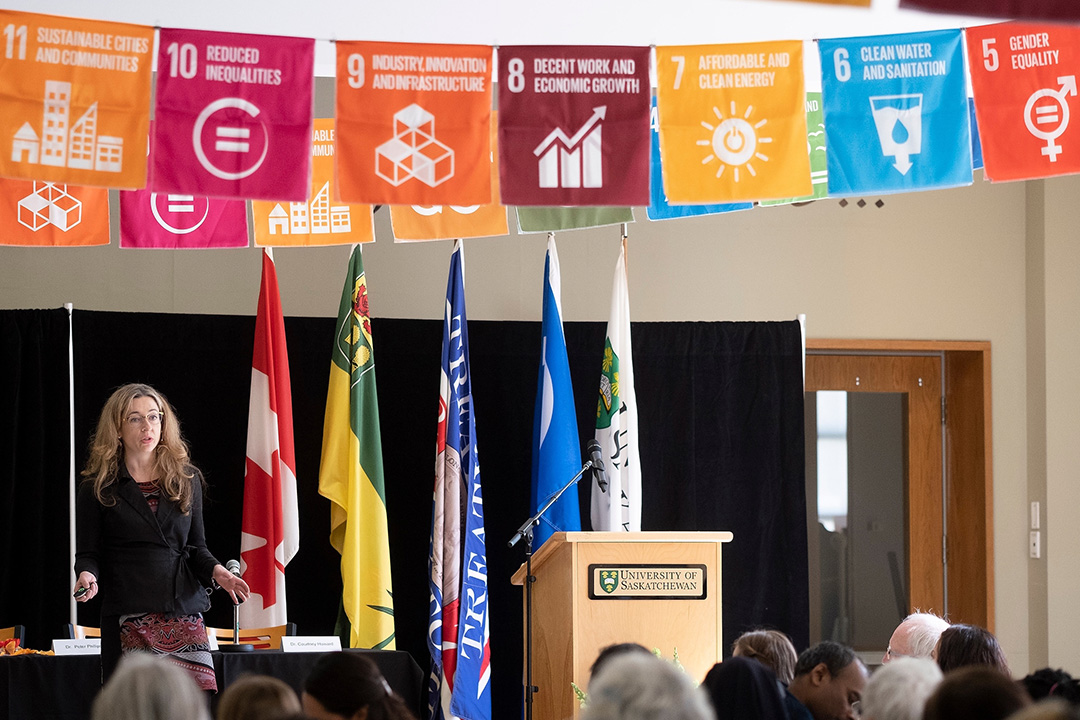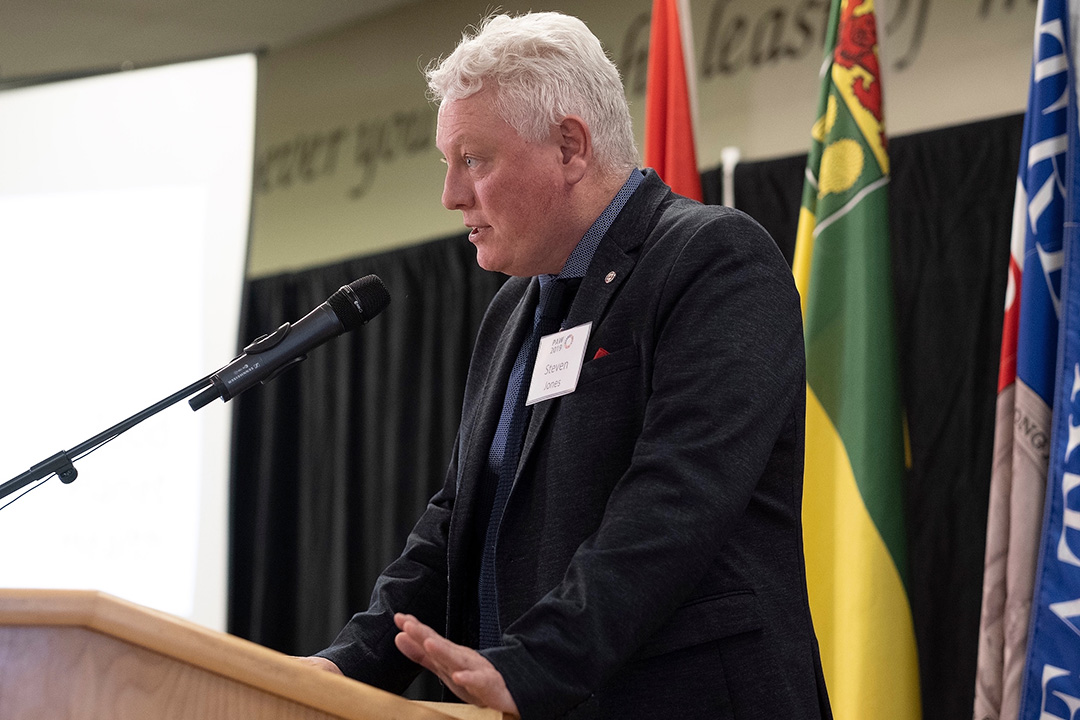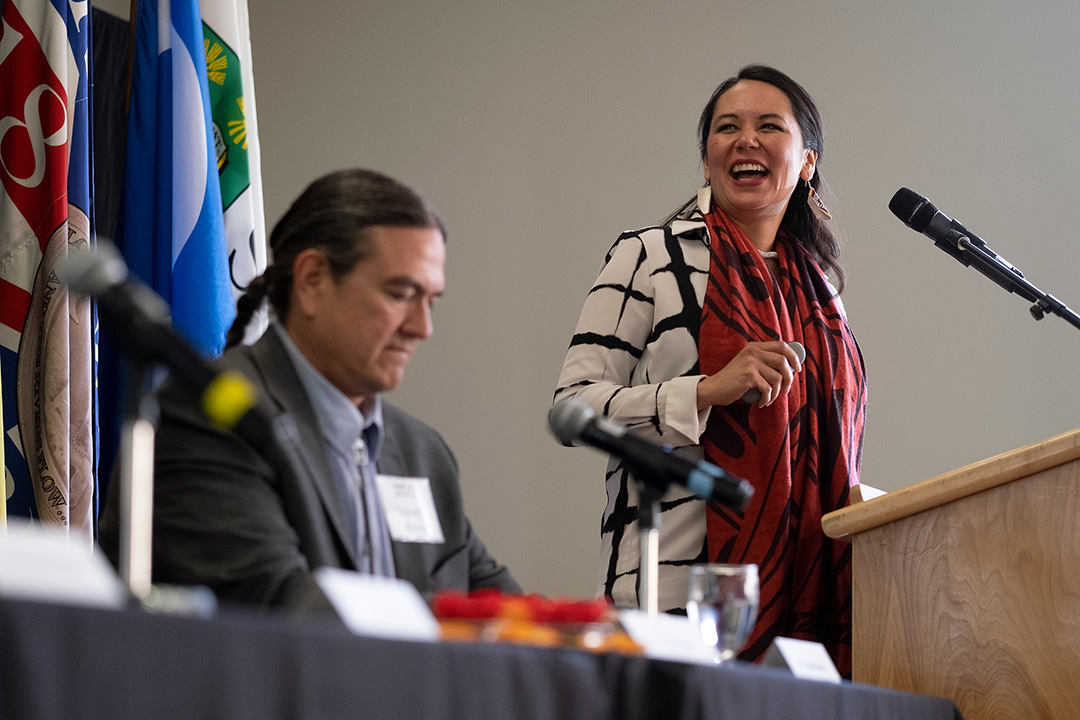
USask hosts successful planetary health conference
For two days in March, the University of Saskatchewan (USask) brought the planetary health discussion to Saskatoon to examine the interdependencies of human civilization and nature.
By Collin SemenoffPlanetary health acknowledges the interdependence of human health and the health of the planet. As an initiative of the USask International Blueprint for Action, the second annual People Around the World (PAW) conference brought together a number of expert presenters and a diverse audience to explore the intricate connections between food, people and the planet.
“Understanding and examining issues related to planetary health is an absolute requirement for those of us who operate within the health and social sciences, environmental organizations, or anywhere human civilization and nature intersect,” said conference chair and scientific lead Dr. Steven Jones (PhD).
Jones, USask’s interim assistant vice-provost, health, and executive director of the School of Public Health, emphasized that the conference theme is not a new disciplinary silo or research centre.
“Planetary health is a transdisciplinary system that builds on all of our existing strengths, compelling us to work together in new and more powerful ways,” he said.

PAW 2019 opened on March 12 with a keynote address from Dr. Brent Loken (PhD), contributor to the groundbreaking EAT-Lancet Commission on Food, Planet, Health. Before an audience of health, environment, Indigenous, and policy researchers, USask students and community partners, Loken emphasized the need for a holistic approach to developing healthy, sustainable food systems.
For Loken, this can only be achieved through an agenda that integrates not only health and environmental concerns but all 17 of the Sustainable Development Goals adopted by United Nations member states in 2015 as part of the 2030 Agenda for Sustainable Development.
“Who else is better positioned to advance this than a university such as this?” Loken said. “[We need] all hands on deck.”
Day 2 of the conference featured keynotes from the University of North Dakota’s Dr. Donald Warne (MD) addressing Indigenous perspectives on health disparities, and Canadian Association of Physicians for the Environment board president Dr. Courtney Howard (MD) presenting Healthy planet, healthy people.

In addition to panel discussions from USask experts specializing in health, policy, food science, culture, and traditional healing practices, PAW 2019 attendees were provided with a number of group learning sessions.
Conference topics included sustainability, genetic engineering, and microgreens for indoor gardens. One of the most popular learning pods, Indigenous food and plants as medicine, was delivered by special guest panelist Dr. Terry Maresca (MD) from the University of Washington.
As a commitment to keep the planetary health discussion alive following PAW 2019, Jones announced the launch of a new monthly lecture series offered through the Office of the Vice-Provost, Health.
Focusing on food, nutrition, and sustainable development concerns, the Food for Thought lecture series will provide the USask community and its partners with a means of better understanding and tackling planetary health complexities. Topics will range from migrant nutritional health to the controversies surrounding factory farming. Details will be released once locations and dates are finalized.

